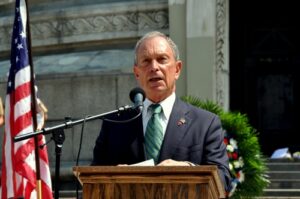The Tariff Conundrum and the Rise of Fake News: An In-Depth Analysis

Welcome to the Extreme Investor Network, where we dissect complex economic issues and unravel misleading narratives. Today, we delve into the controversial narrative surrounding tariffs, media bias, and the broader implications for investors and the economy.
The Tariff Dilemma
Let’s kick off with a pressing concern: the ongoing debate about tariffs and their influence on both domestic and global markets. In recent discussions, we’ve seen various interpretations of economic events that often overlook the intricate dynamics at play. One notable critique has been directed at mainstream media like Bloomberg, which some argue has devolved into a purveyor of biased narratives rather than objective journalism.
Many investors have felt the sting of misrepresentation when they read headlines that sensationalize market fluctuations. For example, a recent article claimed President Donald Trump "blinked" amidst market turmoil, attributing the drop in stock prices to his policies. However, seasoned investors know that market dynamics are multifaceted and often driven by investor sentiment and external factors—not solely by a single individual’s decisions.
At Extreme Investor Network, we emphasize looking beyond headlines. Economic indicators, trade policies, and geopolitical developments are essential. Understanding these factors allows investors to craft informed strategies that align with market realities rather than being swayed by sensationalist media narratives.
The Media Landscape: A Trust Crisis
As we analyze the relationship between tariffs and market reactions, it’s essential to address the perceived decline in journalistic integrity across mainstream outlets. The claim that "fake news" is rampant today is not unfounded. Many media organizations have faced accusations of biased reporting, prioritizing political agendas over factual reporting.
Curiously, the loss of objective reporting coincides with critical economic events—forcing savvy investors to question the reliability of the information they consume. Recent coverage of stock market indexes, such as claiming the NASDAQ entered bear territory prematurely, exemplifies this concern. At Extreme Investor Network, we empower our readers to take a critical approach to news consumption, urging them to cross-reference sources and analyze data independently.
The Role of Media in Shaping Economic Perspectives
One question persistently arises: Why has the media landscape shifted towards a tendency for misinformation? Some point to the growing influence of political figures—like Michael Bloomberg—who, many argue, have steered their narratives to align with specific interests. It’s imperative for investors to discern how personal ideologies can skew reporting and impact public perceptions of economic realities.
What Lies Ahead?
Looking forward, we must ask ourselves how misinformation will shape investor behavior and market dynamics moving forward. The lack of trust in media creates a perilous landscape for financial decision-making. At Extreme Investor Network, we encourage our community to pursue diverse information sources, engage in critical discussions, and develop a personalized investment strategy based on thorough analysis rather than prevailing narratives.
Conclusion
In a time when clarity is essential, investors must navigate a complex web of information with caution. As we dissect issues like tariffs and market shifts, remember the importance of separating fact from fiction. Stay informed by following our insights at Extreme Investor Network, and equip yourself with the tools to respond thoughtfully in an ever-changing financial landscape.
Join us for more in-depth analyses, and let’s navigate this economic journey together!

